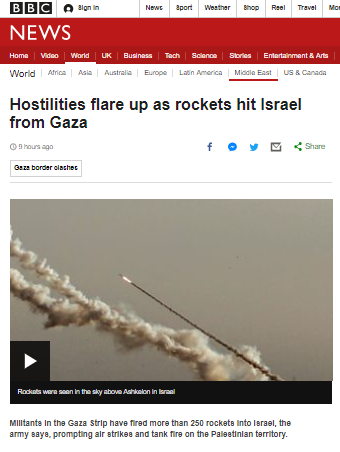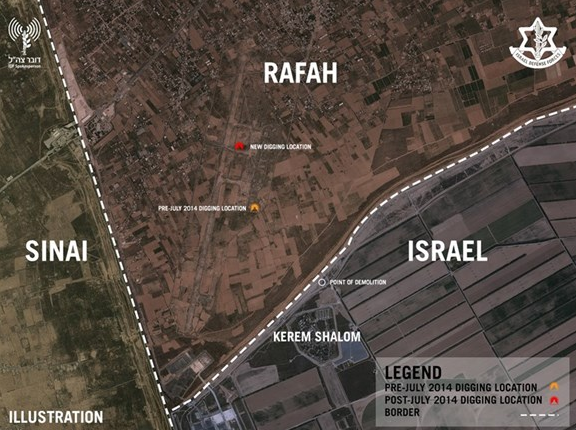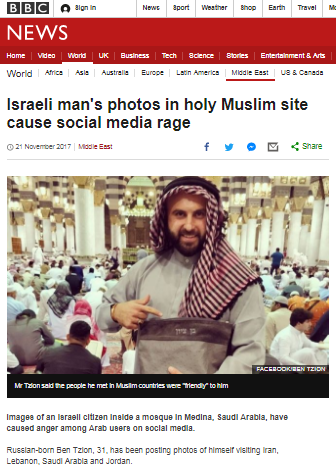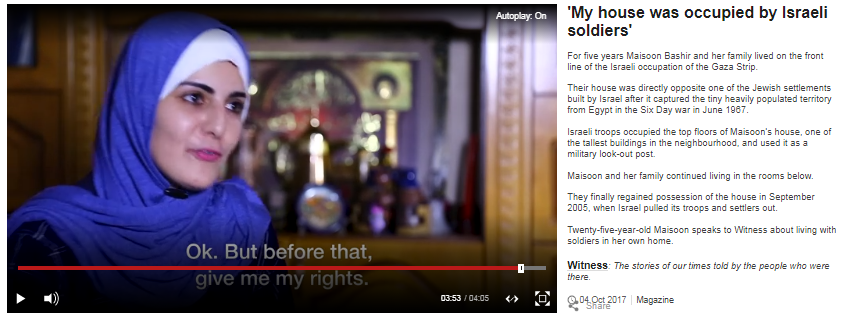On the afternoon of May 4th – some five and a half hours after terrorists in the Gaza Strip had begun launching an intense barrage of rocket attacks against Israeli civilians – the BBC News website published an article headlined “Hostilities flare up as rockets hit Israel from Gaza” and tagged “Gaza border clashes” on its ‘Middle East’ page.
In the hours that followed the article was updated sixteen times. The final version – which will remain on the BBC News website as ‘historical records’ – includes some notable points.
The immediate background to the story was portrayed by the BBC as follows:
“Four Palestinians, including two Hamas militants, were killed on Friday after an attack injured two Israeli soldiers.”
Under the sub-heading “What triggered the latest unrest?” readers were told that:
“The violence began during weekly Friday protests in Gaza against the tight blockade of the area. Israel says this is needed to stop weapons reaching Gaza.
A Palestinian gunman shot and wounded two Israeli soldiers at the boundary fence. The IDF blamed Islamic Jihad for the shooting.”
Those “weekly Friday protests” are of course called the ‘Great Return March’ but the BBC erased Hamas’ involvement in the organisation of the violent rioting which has additional purposes besides protesting “the tight blockade”.
In addition to the sniping incident in which two soldiers were injured (and which prompted the response in which two Hamas operatives were killed) violent rioting and infiltrations which went unmentioned by the BBC took place.
“Some of the demonstrators were rioting, throwing rocks and makeshift explosive devices at soldiers, who responded with tear gas and occasional live fire.
A third Palestinian was killed during riots along the border, the ministry said, identifying him as Ra’ed Khalil Abu Tayyer, 19, adding that 40 protesters had been injured. The IDF said troops had identified several attempts to breach the fence.
Earlier, Israeli troops arrested a Palestinian man who crossed the northern Gaza border security fence, the army said, adding that the soldiers who searched him discovered a knife.”
By way of broader background, the BBC report told readers that:
“The flare-up over the weekend followed a truce agreed last month. […]
The latest violence marks yet another increase in hostilities despite attempts by Egypt and the United Nations to broker a longer-term ceasefire, says the BBC’s Tom Bateman in Jerusalem. […]
Its [PIJ] statement also accused Israel of failing to implement last month’s ceasefire deal, which was brokered by Egypt.”
Notably the BBC’s report failed to mention of Palestinian Islamic Jihad rocket fire on April 30th and an additional attack on May 2nd – neither of which were not reported by the BBC at the time. Interestingly the BBC’s report made no reference to the relevant issue of the connection between these latest attacks and upcoming events in Israel including the Eurovision Song Contest.
The BBC’s report amplified statements and a Tweet put out by Turkish officials while uncritically promoting the false notion of “attacks against civilians”.
“One of the air strikes has hit the offices of Turkish news agency Anadolu, prompting condemnation from Istanbul.”

Failing to clarify to readers that a warning was given prior to the strike to allow evacuation, the BBC went on:
“The Israeli military defended targeting the building in a statement, saying the structure was used by Hamas’s West Bank task force and as an office for senior members of the Islamic Jihad.”
In fact the IDF did not make that statement in connection to the building concerned but in relation to another site. The six-storey building in the Rimal neighbourhood in which the office of the Anadolu Agency was located also housed Hamas’ prisoners affairs office, its general security apparatus and its military intelligence. The BBC apparently did not find it remarkable for a ‘news agency’ to have office space in the same building as a terrorist organisation.
One of the images used by the BBC to illustrate this article was captioned “Rafah was one of the Gaza locations targeted by Israel”.

The BBC did not bother to inform its audiences that what was targeted was in fact not the town of “Rafah” but a cross-border tunnel dug by the Palestinian Islamic Jihad which infiltrated Israeli territory.
As we see the BBC’s framing of this story is shaped by the omission of relevant information and marred by inaccuracy.
Related Articles:
BBC News again promotes false claims concerning death of Gaza baby




